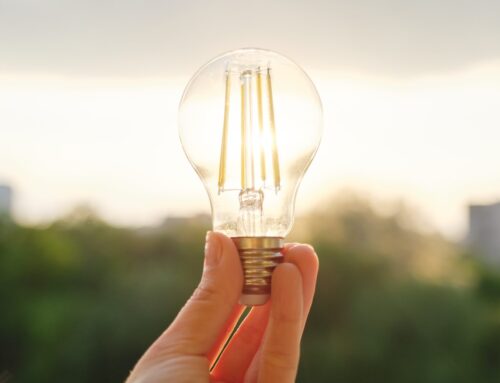How to Maximise Your B-BBEE Scorecard and Use it as a Strategic Tool for SMEs in South Africa

Small businesses in South Africa, particularly Qualifying Small Enterprises (QSEs) with an annual turnover between R10 million and R50 million, must comply with the Broad-Based Black Economic Empowerment (B-BBEE) policy to grow and access new markets. While an essential part of the business landscape, B-BBEE is often viewed as a complex and rather costly regulatory burden instead of a strategic tool that can be turned towards growth.
Where the critical aspect comes in for these businesses, is when it becomes necessary to secure government contracts, integrate into corporate supply chains, attract investment, and enhance their overall brand reputation – then, the ability to successfully navigate the five core scorecard elements, becomes of paramount importance. To keep it short, these five elements are:
1. Ownership
2. Management Control
3. Skills Development
4. Enterprise and Supplier Development (ESD) – including Procurement
5. Socio-Economic Development (SED)
Therefore, without having a clear strategy, all that effort put in to comply can drain resources and fail to deliver the truly meaningful business benefits.

Let’s look at the current hurdle:
The primary challenge for small businesses is maximising their B-BBEE scorecard, but here comes the catch – without compromising core business goals. In truth, many businesses struggle to align B-BBEE initiatives with their operational and financial objectives, viewing compliance as a separate, administrative “tick-box” type of exercise. This leads to several issues:
- Complexity and administrative burden: The B-BBEE codes are intricate and subject to change, which creates significant administrative work and risk of non-compliance if it is not managed correctly.
- Misallocations of resources: Businesses may invest in initiatives that provide B-BBEE points; however, they don’t contribute to any long-term profitability or productivity.
- Ineffective implementation: Without the proper strategic guidance, businesses may fail to leverage key opportunities, such as using Skills Development to fill critical skills gaps or using ESD to strengthen their own supply chain.
- Limited immediate financial return: While B-BBEE compliance can lead to long-term financial benefits, the immediate impact on operational profitability (the Return on Assets, or ROA) is often not significant, which can lead to a perception that it is an expensive and slow-moving investment.
Then, we come to the question of how these hurdles can be overcome:
To overcome these complications, small businesses should adopt a proactive and strategic approach to B-BBEE, integrating its principles into their core business model. This involves transforming each scorecard element from a “compliance requirement” into a “catalyst for growth”.
How can you go about doing this?
- Ownership: For example, implementing an Employee Share Ownership Plan (ESOP). This is to earn points by empowering Black employees, and other employees of colour, which enhances morale, productivity, knowledge, and retention.
- Management Control: Promote diversity by strategically appointing Black professionals to management or senior roles. This improves governance and market perception, while also fulfilling scorecard requirements.
- Skills Development: For example, investing in training – accredited training, that is – learnerships, and internships that directly address skills shortages within the business, and retains employees in the long run. Partnering with SETA (Sector Education and Training Authority) can provide access to grants, which means that you are turning training costs into a strategic investment in human capital.
- Enterprise and Supplier Development (ESD): Leverage this heavily weighted element by strengthening your supply chain. Prioritise procurement from B-BBEE compliant suppliers and, where applicable and necessary, provide mentorship to them. This will not only earn you points but it also builds a more resilient and diverse network of partnerships.
- Socio-Economic Development: Align community upliftment initiatives with your business’s expertise or industry. This creates a positive company brand image and also earns you points, while making a meaningful social impact.
By shifting the perspective and viewing B-BBEE as a catalyst for innovation and sustainable growth, small businesses can move beyond a mere compliance mindset. The goal is to achieve both a good B-BBEE score, and a stronger, more profitable business.
How Danshaw Consulting can help and add value to your business:
As a consulting company with extensive compliance and HR expertise, we can provide you with a tailored roadmap to maximise your B-BBEE scorecard in a healthy manner. Our value-add is not just in achieving a good score, but in ensuring that every B-BBEE initiative contributes directly to your business’s success.
We can help and add value in a couple of ways:
- Perform a strategic gap analysis: Danshaw will assess your current standing against the B-BBEE scorecard and identify high-impact areas where targeted investment will yield the greatest returns for both your compliance and business growth.
- Develop integrated solutions: We will help you design and implement B-BBEE initiatives. From creating an effective ESOP to establishing a strategic Skills Development Plan, while seamlessly integrating with your HR and operational strategies.
- Navigate complexity: Danshaw will act as your expert partner, providing you with guidance on the intricate and evolving B-BBEE codes, ensuring all your activities are fully compliant and documented for verification.
- Optimise your investment: Our expertise allows us to identify cost-effective ways for you to earn points, such as leveraging SETA grants, ensuring your B-BBEE budget is a strategic investment rather than a reactive expense.
Keeping it short, we help you to view B-BBEE not as a burden, but as a powerful tool for enhanced market access, talent development, and long-term sustainable growth.
– Written by Michelle Mostert & Jaco Jordaan









